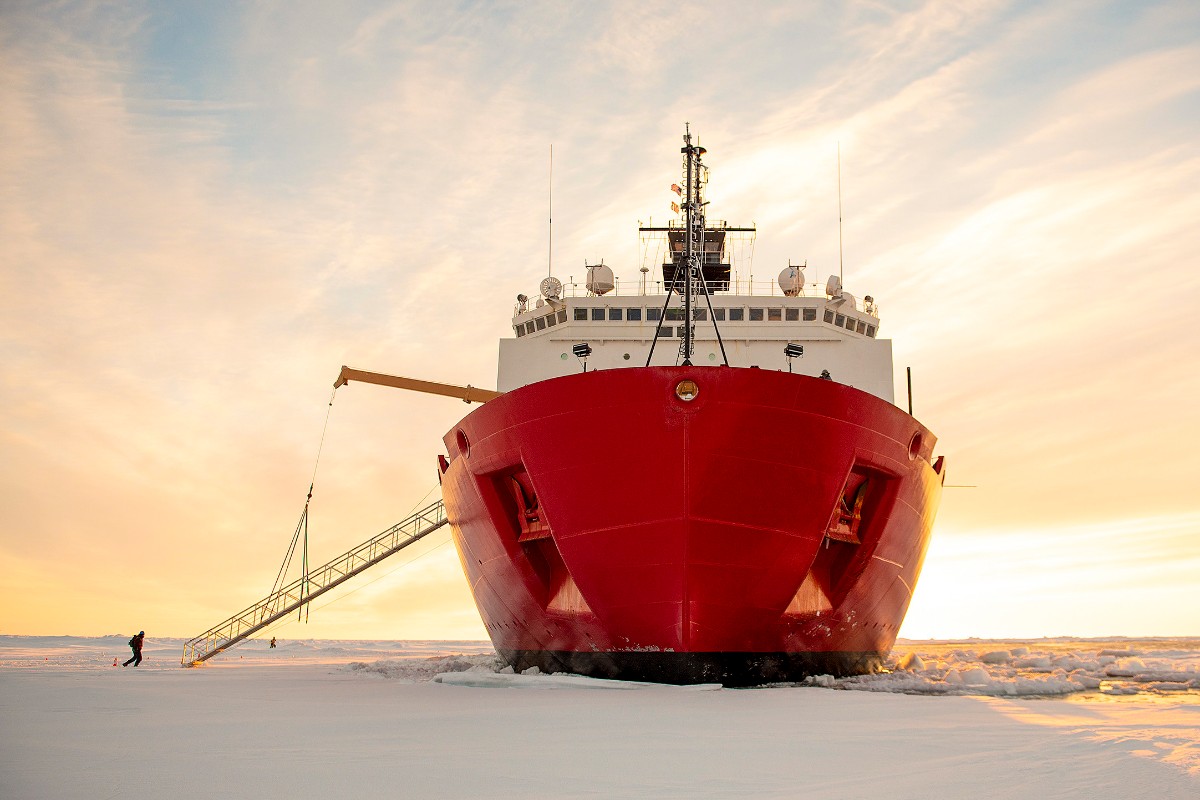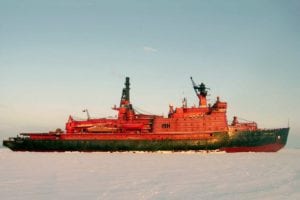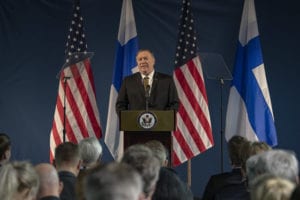 Photo Credit: United States Department of Defense
Photo Credit: United States Department of Defense
2019 DoD Arctic Strategy: China and Russia, but No Climate Change?
As climate change makes it impacts known around the world the Arctic is getting an especially heavy dose of warming. According to the National Oceanic and Atmospheric Administration, air temperatures in the Arctic have continued to warm at twice the rate of the rest of the globe.
The US is one of many states that have an interest in the Arctic, especially as climate change continues to reshape the region, and the Department of Defense is due to update their Arctic strategy in the coming days.
Navy and Coast Guard Arctic Strategies
The bulk of the new strategy is expected to be made up of the US Navy and US Coast Guard plans released earlier in 2019.
On April 21, 2019 the United States Coast Guard (USCG) released its second strategy document with regard to the Arctic. The USCG strategy focuses on upholding the current rules-based order and increasing investment.
The strategy identifies China and Russia as challengers to the international order by stating “Russia and China’s persistent challenges to the rules-based international order around the globe cause concern of similar infringement to the continued peaceful stability of the Arctic region.”
The USCG strategy document also calls for increased investment in the Arctic. Citing how China and Russia have both made the Arctic and investment in the Arctic priorities, the document says, “Closing the gap requires persistent investment in capabilities and capacity for polar operations.”
The US Navy Arctic strategy was not widely released to the public, but those that were able to obtain a copy did not give it high marks.
Expectations for the 2019 DoD Arctic Strategy
Two things should be expected in the DoD’s updated strategy: Russia and China. Given the priorities laid out in the 2018 National Defense Strategy – where great-power competition is labeled as the highest priority – the Arctic is a prime arena for great-power competition to play out.

Russian nuclear icebreaker “Arktika”
Speaking at the Arctic Forum in St. Petersburg, Russian President Vladimir Putin laid out Russia’s plan to secure their foothold in the region. Putin’s plan includes expanding shipping through the Northern Sea Route, expanding its nuclear icebreaker fleet, and expanding ports on both sides of the shipping route.
China has also asserted themselves into the Arctic discussion despite not being an Arctic state. China labels themselves as a “near-Arctic” state and wants to develop a “Polar Silk Road.” The Chinese want to build a Polar Silk Road, a play on The Silk Road Economic Belt and the 21st-century Maritime Silk Road Initiative, to develop Arctic shipping routes.
The Arctic has clearly become a priority for Russian and Chinese policy and investment. However, with only two operational icebreaker ships, the US is far behind both Beijing and Moscow in the Arctic.
Given the shift in US defense priorities and National Security Adviser John Bolton’s speech to newly graduated students from the Coast Guard Academy expect the 2019 Arctic Strategy to mirror those priorities and place a heavy emphasis on Russian and Chinese Arctic activity.
One thing that shouldn’t be expected in the 2019 Arctic Strategy is the term climate change. Despite the overwhelming evidence of climate change, the current US administration has refused to acknowledge the problem.

Secretary Pompeo Gives Remarks on the Arctic
US Secretary of State Mike Pompeo gave a speech to the Arctic Council on May 6, 2019 in which he stated, “Steady reductions in sea ice are opening new passageways and new opportunities for trade.”
Pompeo also went on to discuss other climate change related issues such as CO2 emissions, environmental resource preservation, and environmentally responsible resource access.
However, one phrase that was left out of the speech, all 2,500+ words of it, was the phrase climate change. Given that one of the highest-ranking members of the US government refused to acknowledge climate change in a speech about the Arctic to the Arctic Council, don’t expect it to appear in any official military strategy document.
Regardless of what is and what is not in the new DoD Arctic Strategy, don’t expect the US to become a major player in the Arctic until 2025 or 2027. USCG Commandant Adm. Karl Schultz told members of the US Congress that the until the second and third Polar Security Cutters are finished the US “won’t really have much of a game up there, in terms of presence.”





